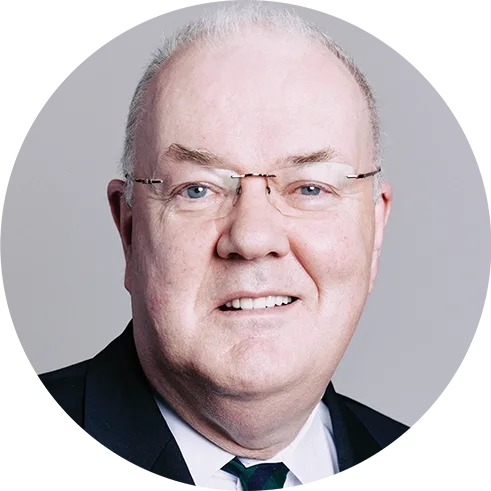Derek Thomas on the Welsh Revival

What impact did the 1904 Welsh Revival have on the church and on culture? Today, Stephen Nichols is joined by Derek Thomas to reflect on this remarkable season of gospel awakening in Wales and how its legacy endures today.
DR. STEPHEN NICHOLS: Well, welcome back to another episode of 5 Minutes In Church History. On this episode, we are live from the Ligonier National Conference, and I have my good friend, Dr. Derek Thomas. And hopefully you know this by now, but while he is in these United States, he's Welsh, and I thought it would be wonderful to hear from him what we must know about the Welsh Revival. So, Dr. Thomas, good to have you.
DR. DEREK THOMAS: It's a great honor to be in your presence once again. Dr. Nichols.
SN: We're here to have you talk about the Welsh revival. So, if you could tell us what we need to know about the Welsh Revivals.
DT: This is a revival that took place in 1904, and it spread into 1905 in Wales. It began with a Methodist preacher by the name of Joseph Jenkins in a coastal town off the Irish Sea called Newquay. Small little seaside town where he and some others he was preaching. And something happened in the preaching. The congregation began to be greatly affected. It had emotional aspects to it, and it spread to a man by the name of Evan Roberts.
SN: And if I remember, was he in seminary at this time?
DT: He was a young man. He was doing a three-month course in seminary in Swansea. I think it was down in South Wales, and he'd heard about what had happened in Newquay. And the problem with Evan Roberts was that there were other things like visions, and there was a ministry of several women that accompanied him on these revivals. But you can go to any town or village. The village that I grew up in, for example, had five churches in it, and there was a population of probably less than 2000, and these were large churches built in 1904.
SN: So, they traced their roots back to the churches were planted after this revival.
DT: My grandfather who didn't speak English, had a Bible, a Welsh Bible on his kitchen table, and he remembered the 1904 revival in the village that he grew up in.
SN: And what was the name of your village.
DT: Llanybydder.
SN: I'll take your word for it. Now, you've mentioned this to me before. Another sort of legacy of the Welsh Revivals has to do with Welsh, we call them soccer games, but Welsh football games that this remarkable phenomenon just sort of happens during Welsh football games. Would you like to talk about that?
DT: The singing of hymns. So, these are, in 2025, these are completely unchurched people probably never been in church in their entire lives, but they know Welsh hymnody, and they can sing. And the Welsh noted for being singers. And just as you have the phenomenon in English soccer of very rude things being said, by 20, 30,000 people, in Welsh rugby matches, they sing hymns that you and I would sing in church.
SN: So, this just spontaneously happens during these games.
DT: I think they just learn it at the game. I mean, they go as children, and they learn the words from the parents.
SN: Yes, in the previous generation.
DT: It's kind of handed down, but it has no spiritual content to it.
SN: It's just this sort of thing that's done.
DT: If anyone was really interested in reading about the Welsh Revival, the sort of specialist is Eifon Evans. E-I-F-O-N Evans. And he has written a book, probably the definitive book on the Welsh Revival, very readable and published by, I think the Bryntirion Press. And then there's a YouTube lecture on the revival by Jeff Thomas, our friend, which is fascinating.
SN: Well, thank you for discussing this Welsh Revival with us, this legacy from your homeland, and thanks for those sources. And as always, it is a pleasure to have you. Well, that is Dr. Derek Thomas on the Welsh Revivals. And I'm Steve Nichols and thanks for listening to 5 Minutes in Church History.
Recent Episodes
Noah Webster: More Words
February 18, 2026|The Nineteenth Century
401 Again
February 11, 2026|The Ancient Church
401
February 4, 2026|General Church History
Noah Webster’s Dictionary
January 28, 2026|Biography
Early Methodism: Circuit Riders and Camp Meetings
January 21, 2026|American Church History
Early Methodism: Beginnings and Revival
January 14, 2026|The Eighteenth Century

